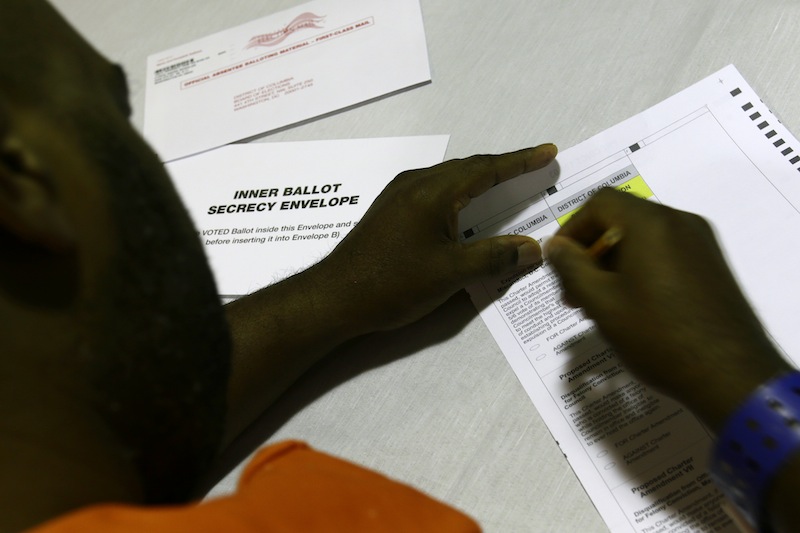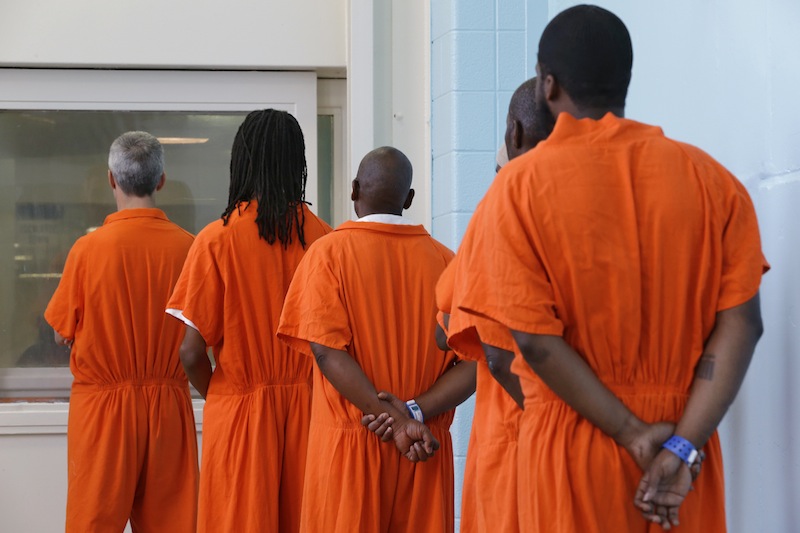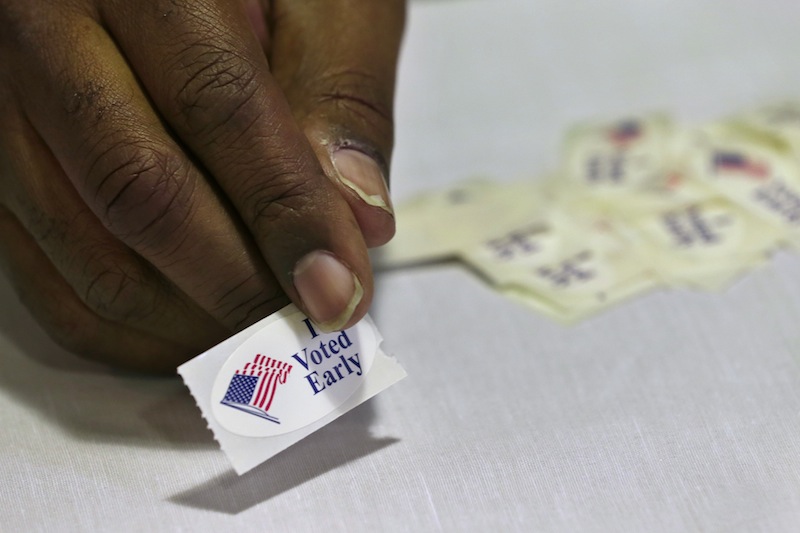WASHINGTON — The voters at this southeast Washington polling place were all dressed alike: orange jumpsuit, white shoes. And when they finished voting, they went back to their cell block, not back to work.
Still, voting inside the D.C. Jail looked a lot like voting at precincts around the country.
“What’s your name, sir?” poll worker Arlin Budoo said as an inmate sat down at a table in front of him last month during one of two voting days.
The man gave his name and precinct. Budoo flipped through a stack of absentee ballots, found the man’s and handed it over. He explained how to darken circles on the ballot to record a vote.
“Remember to vote both sides of the ballot,” Budoo said.
While it seemed ordinary, the voting that went on at the D.C. Jail and a facility where women are housed next door is unique. Most states and the District of Columbia bar prisoners serving time on a felony conviction from voting. But inmates awaiting trial or serving a sentence for a misdemeanor, an estimated 700,000 people nationwide, are allowed to vote as long as they aren’t barred by a past felony conviction.
Most states, however, don’t actively help these people vote, said Marc Mauer, the executive director of The Sentencing Project, a Washington-based group that advocates for sentencing reform and alternatives to prison.
“In the vast majority of jails there’s absolutely nothing being done to make that happen,” Mauer said.
There are exceptions. Jails in San Francisco register prisoners to vote and coordinate voting by absentee ballot. More than 300 ballots were delivered to prisoners there this year, said Nick Gregoratos, the prisoner legal services director.
Maine and Vermont, the only two states where prisoners never lose the ability to vote, also help inmates cast absentee ballots.
“For the guys that are incarcerated having any voice is hugely important,” said Wilhelmina Picard, the director of corrections education in Vermont who also oversees voting.
The District of Columbia, meanwhile, has been making an effort to help prisoners vote for the last several years. This year, 88 men voted at the D.C. Jail. That’s a fraction of the facility’s some 1,700 inmates and a tiny number when compared with the approximately 267,000 residents who cast ballots in the last presidential election.
But, like many voters, inmates still had to wait in line on the first day of voting Oct. 24.
On the third floor, more than a dozen men stood along a corridor, flipping through paper voter guides also sent to residents. They sat down to vote in three available chairs. Pat-down searches went on periodically in the background. Inmates working kitchen jobs rolled carts by with boxes of lunch. Every once and a while someone shouted to get a guard’s attention and to have a sliding door unlocked.
As prisoners completed their ballots, poll workers made sure they placed them in a series of two envelopes used for absentee voters, signing over the flap on the second one.
When they finished, poll watcher Tyrone Parker offered an oval “I Voted” sticker.
“You did good, man,” Parker said. “I’m proud of you.”
Send questions/comments to the editors.





Comments are no longer available on this story